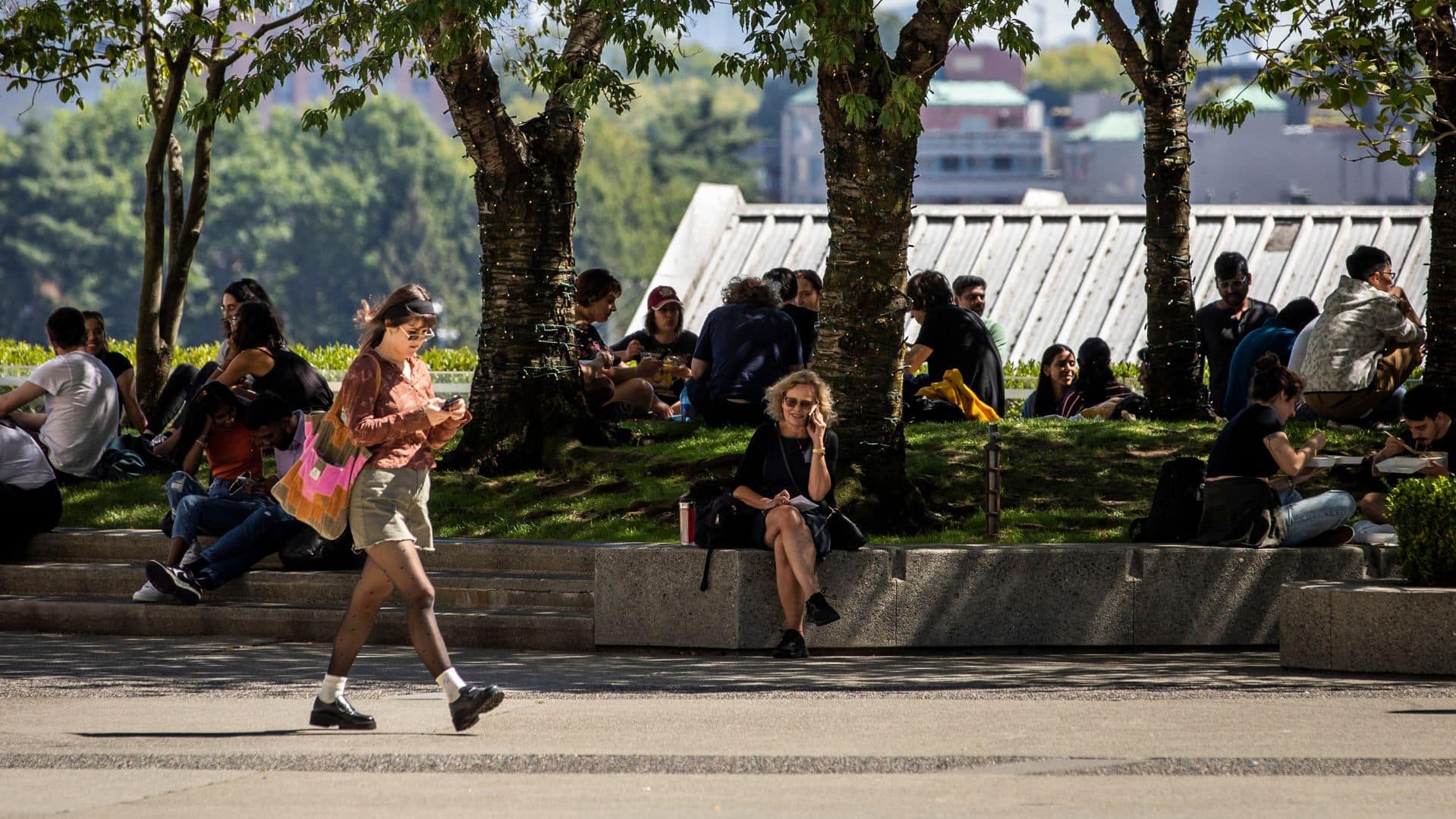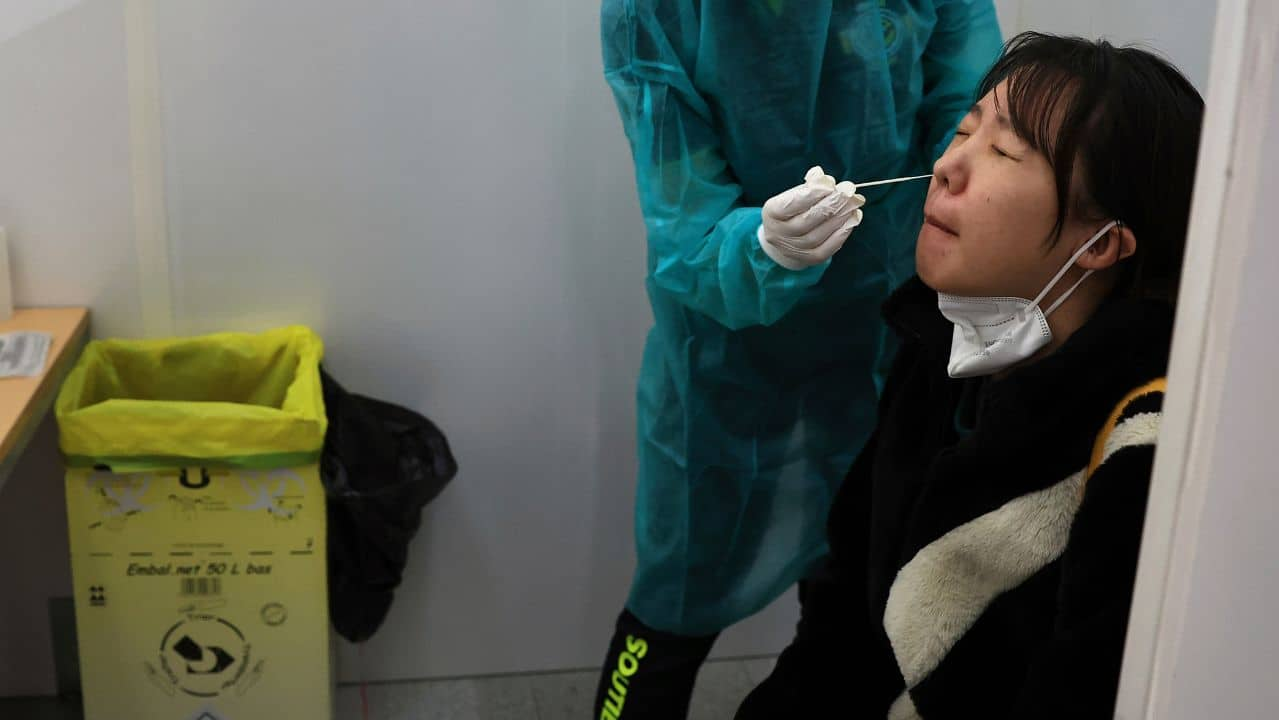A grassroots group of health professionals are calling for British Columbia to reinstate mask mandates in schools and hospitals to prevent a repeat "tripledemic" of COVID-19, RSV and influenza infections that pushed the province's hospitals to the brink last fall.
And with data showing rising COVID-19 cases in B.C. and two new viral subvariants on the horizon, Protect Our Province B.C. says the province should act sooner rather than later.
The group is composed of more than a dozen doctors, nurses, researchers, teachers and professionals who advocate for evidence-based pandemic policies.
"We know from last year kids and schools were hit hard and if the goal is to keep kids learning in school we need to do what we can to prevent virus spread this fall," said Dr. Lyne Filiatrault, a retired emergency room physician in Vancouver and a member of the group.
Masks should be required in schools and health-care settings, Protect Our Province B.C. said in an August 8 open letter, and the province should prioritize air filters and ventilation in classrooms to reduce the chance of transmission.
"If really, the goal is to keep kids learning in school then we need to do everything we can to prevent viral spread both of COVID and other airborne viruses this fall," Filiatrault said.
WATCH | COVID-19 cases expected to rise:
While new data from the Canadian Centre for Health Information shows COVID-19 sends fewer people to the ICU this year compared with 2022, hospitalizations rose nearly 20 per cent between April 2022 and March 2023 compared with the previous year.
And wastewater data reported by the B.C. Centre for Disease Control on Aug. 23 shows viral concentrations declining since January have levelled off across the province and appear to be rising in the Lower Mainland and Vancouver Island, as well as in other regions across Canada.
"It does look like cases are going to go up and we are going into the fall when kids are going to go back to school and more people are at work," said Dr. Christopher Labos, a cardiologist in Montreal with a degree in epidemiology.
"And with hospitals becoming overwhelmed [last year], it's not unreasonable to think that a very similar thing could happen again this year."
But with the vast majority of the population at least somewhat protected by either vaccination or a previous COVID-19 infection, it's not yet clear whether new variants EG.5 and BA.2.86 could cause infections to explode the way the original Omicron variant did.
Early evidence about EG.5 doesn't show it causes more severe illness, but it could be more transmissible that previous Omicron subvariants circulating in B.C.
It made up about 28 per cent of cases across Canada during the week of Aug. 6, according to the Public Health Agency of Canada, however the World Health Organization says the global risk level is "low."
But less is known about the highly mutated BA.2.86 variant, which has been identified in just a handful of countries in recent weeks but not yet in Canada.
Infectious disease experts say a high number of mutations may make BA.2.86 more severe, but that can't be known this early and with so few identified cases.
WATCH | Subvariants continue to spread:
Protective measures can help: experts
Labos said it would make sense to require masks in schools and and health-care settings as cases rise and we learn more about the new variants.
"It's not just the properties of the virus or the variant, it's also the environmental situation that we put the virus in and how easily we allow it to spread, and if we have any public health measures in place to stop it from spreading," Labos said.
University of Toronto infectious disease specialist Dr. Isaac Bogoch stressed that parents should keep themselves and their children home from school and work if they are sick, whether or not a test says they have COVID-19.
"It doesn't matter what the virus is, just let's prevent illness in the community by doing that simple measure," Bogoch said.
Bogoch, Labos and Filiatrault also encouraged parents to get their children vaccinated for COVID-19 and influenza, as vaccination rates for children under 12 lag far behind rates for teens and adults in B.C.
Adults should also get boosted themselves, said Filitrault, particularly once the updated vaccines tailored toward more recent Omicron strains become available later this fall.
Growing concerns for back-to-school as data shows rising COVID-19 cases in B.C. - CBC.ca
Read More



No comments:
Post a Comment